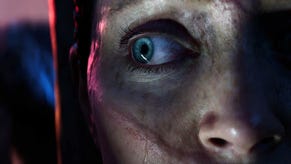Wolfenstein 2 and the anatomy of a blockbuster hero
First blood.
Picture for a moment the triple-A hero. He is Kratos grappling a gigantic serpent on mighty waves; he is Call of Duty's Jack Mitchell acquiring a magic robot arm at his best friend's funeral. Sporting abs (or guns) that shine like justice, he is fast, deadly and remorseless. At his logical conclusion, the triple-A hero is Kurtz from Apocalypse Now sat in the dark jungle, whispering tales of annihilation, a catalogue of army medals in his back-pocket.
In film, the only recourse left for the Stallones and Lundgrens of 80s fame is parody. These days we tend toward John Wick over The Terminator, although key traits - unquenchable bloodlust, highly efficient - still remain.
This is not the case in games, where hyper-masculine juggernauts abound. Wolfenstein series hero BJ Blazkowicz - lumbering toward Nazi henchmen like a haunted steamroller - is the perfect example. He's a one-man army wrought by the gods of steroidal fury.
Wolfenstein 2: The New Colossus follows BJ and a motley of revolutionaries fighting a Nazi occupation of America. An enticing premise pertinent for these strange times, but one still based, at the core, on blowing up the baddies. However, unlike his triple-A counterparts, beneath BJ's muscular steely-eyed veneer lies the soul of a poet.
"Are you out there somewhere, Billie?" he whispers to the wastes in Wolfenstein 2. He's looking for a long-lost childhood friend, but this is no best-buddy-from-war-camp-got-torn-in-half-by-evil-robot affair - although there's an abundance of bloodthirsty mechs in the game. This is a diagram of a psychic event: BJ's complex personal trauma.
Unlike others of its ilk, Wolfenstein 2 is not afraid to watch its protagonist snap, and no abundance of high-tech armour can mend the cracks in Terror Billy's heart. For all its lurid violence and cartoon caricature, the game's deft exploration of abuse and trauma goes where no action-shooter appears to have gone before. Wolfenstein 2 steers beyond bland idol-worship and into something unprecedented within the genre. It delivers a hero that's struggling.
A shot of family Blazkowicz from Wolfenstein 2, circa 1920 sees BJ - or "Billy" - aged nine: Through wardrobe slats, you watch your father skirt around the room like a caged predator. He bemoans getting "screwed" out of his earnings, the humiliation he endures "keeping the business alive", and how he will not lose "his reputation" based on your romantic proclivities - namely, "getting sweet" with a local girl of colour, the aforementioned Billie, presumably lost to the wastes. "I am not the man you want to mouth off too," Dad sneers at Mom, who lingers by the slats.
Later, he lifts you into a choke hold, tightening his grip as you desperately smash a vase against his head. A far cry from the arsenal of powered-up superweapons BJ usually sports, you have X for grab.
Afterwards, you are dragged out to the toolshed, hands locked in a brace. You watch your father beckon the dog over. "It's kill or be killed," he says, loading a shotgun. "The old and the weak are doomed."
Dad tells you of the cockroaches and dirty bodies who are doing "everything in their power to rob the white man of what he's earned." He ties your hands to the shotgun's trigger, and instructs you to shoot the dog, sitting placidly by her food bowl. If you don't obey your father, he screams that "you're a runt", and "stupid to boot". If you chose to shoot away from the dog, Dad takes the gun off you and shoots her himself.
Whichever way it goes, you are somehow responsible for killing your beloved childhood pet. The burden of blame always rests with the victim -- an issue starkly illuminated by the institutionalised shame heaped on victims of sexual assault -- and the weight of BJ's shame sits heavy on his disproportionately gigantic shoulders, catching at him at during the rare moments of calm in his grim crusade.
Stuck firmly in the present, BJ awakens to crippling new injuries: "Who is that? Is that me? Is that me?" he says, voice rising with panic, broken body unmoving. "Is that me? The old and the weak are doomed."
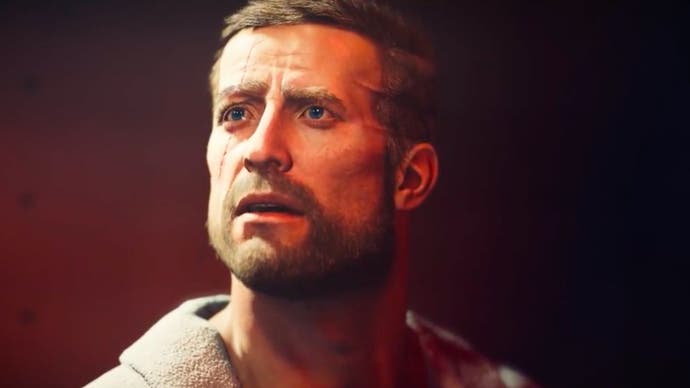
Early on in the game, BJ is in a wheelchair, struggling under the burden of his shame. His own childhood mantra is reflected in the Nazi state; a regime which routinely executed disabled people. Under Nazi propaganda they were labelled "useless eaters" who had "lives unworthy of living". It is only by looking at the trauma of the individual that we can extrapolate the mechanisations of abuse at a societal level.
On its surface, Wolfenstein 2 sings the same old song at the heart of most action-games: Violence begets violence, and violence ends violence -- until the appropriately timed sequel. You only need glance at the game's striking orange laser death-gun to appreciate its appetite for carnage.
However, Wolfenstein 2 also tells the story of a gun-toting superman who has feelings, and how that's more than okay. Within the contextual reference of its genre - a world of grunting he-men and faceless assassins - it's a pioneer.
It also explores how trauma can lurk at the heart of a ridiculous - but ever popular -- male archetype. It's not surprising that the logical conclusion of a man driven to kill en masse is more Kurtz than Captain America, but this is a self-awareness rarely touched upon by Wolfenstein's contemporaries - or even in Hollywood.
"Ignore the pain. Ain't dead, so keep moving," says BJ, after jumping off the wreckage of a rocket-powered train. Whether it's over spilt milk or the horrors of war, boys and feelings are still not encouraged to mix. As such, it can be particularly difficult for men to come forward in abusive situations, as they are all too aware of the shame inflicted on men perceived as "weak".
Men make up three quarters of the total UK suicide death toll. Suicide is the leading cause of death for men aged 20 to 44. Around three times as many men than women kill themselves.
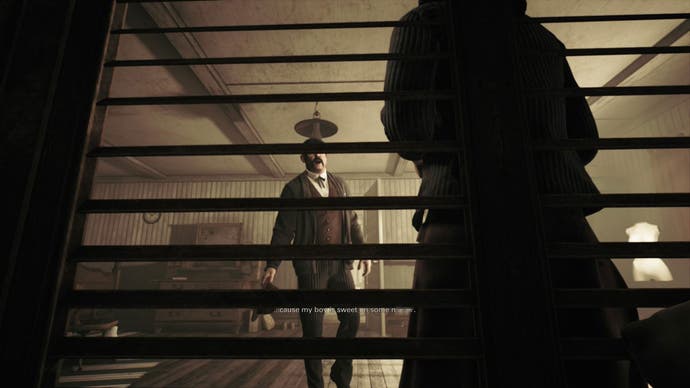
Societal expectations that 'real men should be strong, silent and in control' are likely not helping. Additionally, a culture that sometimes labels mental health issues as a failure can only hinder people's attempts to get help. 72 percent of people who died by suicide between 2002 and 2012 had not been in contact with a health professional about the feelings that likely led to their death.
Even though Wolfenstein 2 delves into these problems at a surface level compared to a multitude of narrative-rich indie titles, hyper-violent FPS games have unparalleled reach with young men the world over, and as such hold great potential influence in terms of their viewpoints and consumer habits.
Picture Rambo weeping at the end of First Blood: a well-know trope of the burnt-out Vietnam veteran that we recognise immediately today as post-traumatic stress disorder. However, the First Blood film came out only three years after PTSD was officially recognised - decades after the holocaust, the world wars and the start of the Vietnam war.
The fact that Wolfenstein 2, like First Blood, even examines the root of its leading man's violence is a step in the right direction. We are far removed from the blank-faced kamikaze henchmen of yesteryear who conveniently moved into our range of fire. Action-Shooters are evolving, inside and out. As games become more immersive, so their story becomes ever more meaningful.
If you think you or someone you know may be suffering, please don't carry on in silence.
In the UK:
You can call the Rethink advice and information service on 0300 5000 927 (10am-1pm).
Also the Depression Alliance, a charity, has a network of self-help groups.
Samaritans offers a 24-hour confidential helpline: 116 123
In Australia:
You can contact the BeyondBlue support service in 1300 22 4636
In the US:
You can call the Crisis Call Center on 1-800-273-8255 at any time of the day.
If you're more comfortable talking via text than on the phone, 7cupsoftea.com offers an anonymous chat service.
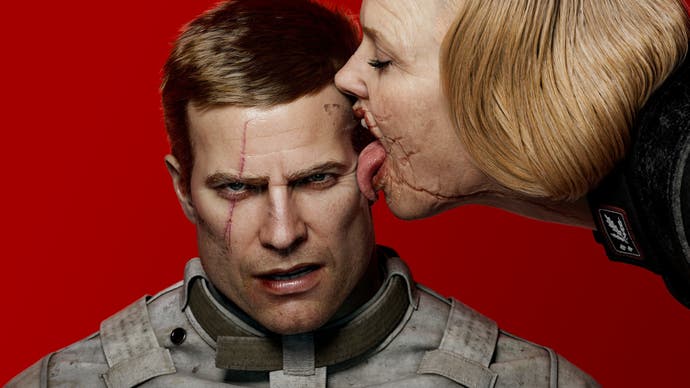


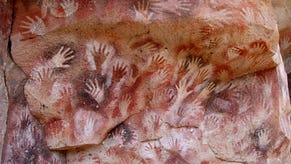
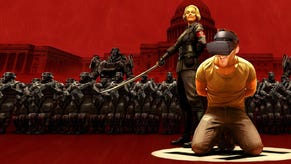
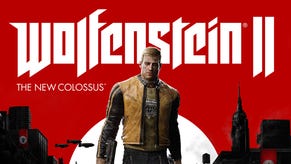
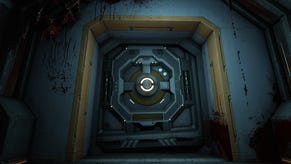

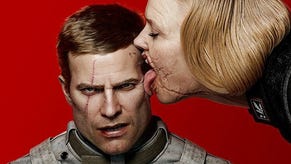

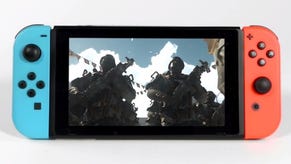





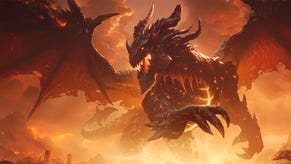
.png?width=291&height=164&fit=crop&quality=80&format=jpg&auto=webp)
